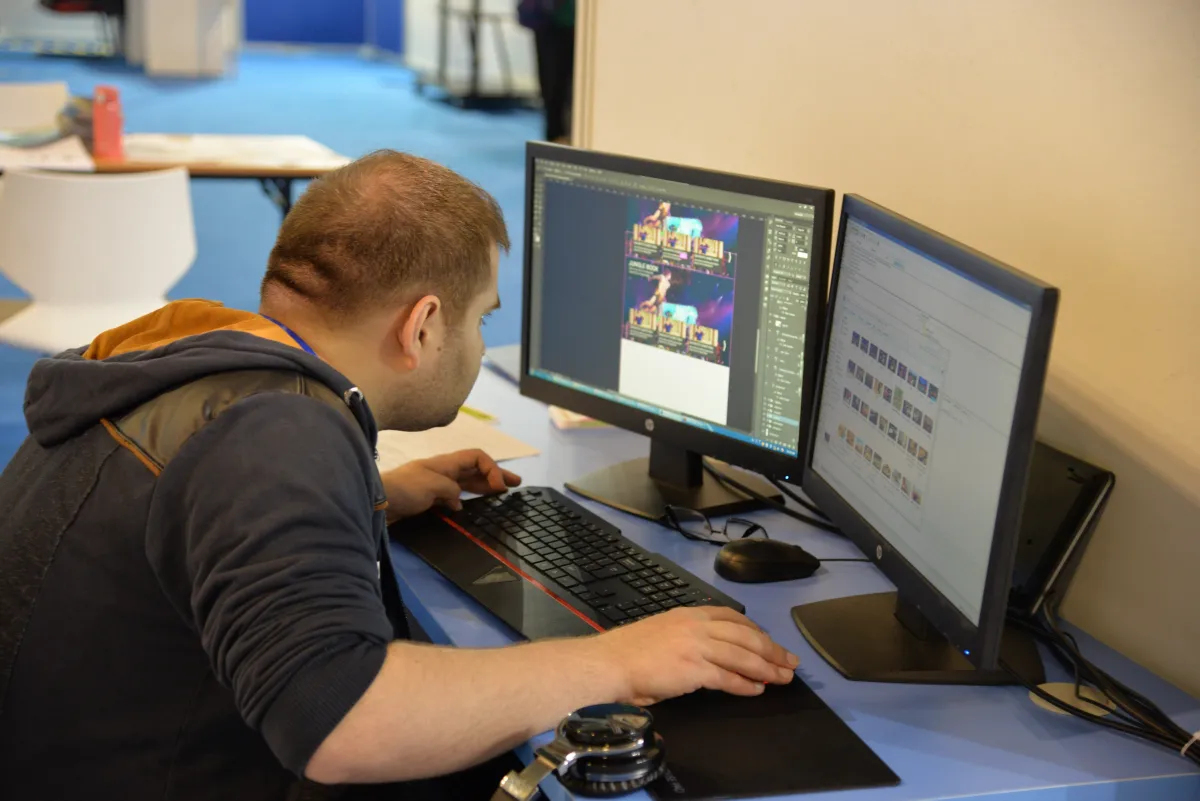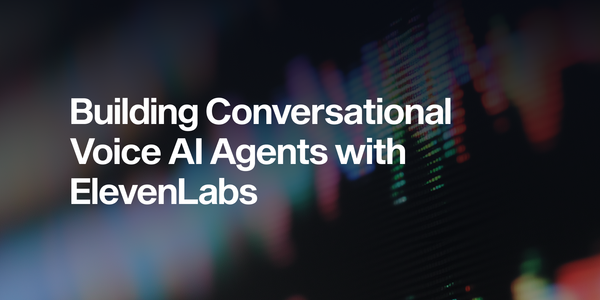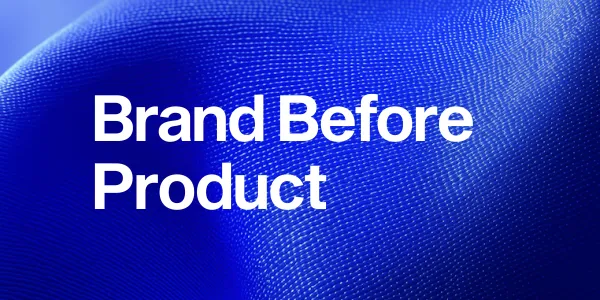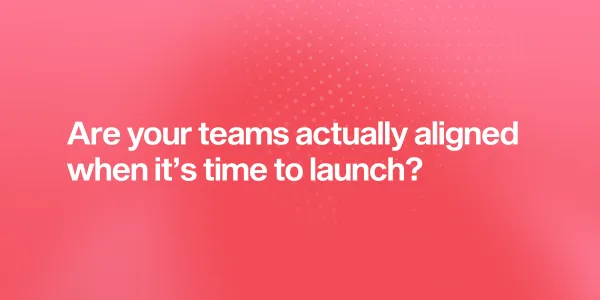Staying healthy while coding for life
Coding can take a toll on your body and mind if health is neglected. Dino shares practical tips for maintaining good posture, hydrating, and managing distractions while working long hours. Improve your health and productivity with simple, actionable changes.

If you’ve been in the IT industry for a long time, there is a high chance you experienced one or more health difficulties. I’m using the word “difficulties” because saying “health issues” sounds too harsh, but for many people it may, unfortunately, become a reality.
Millions of us work a 9–5 desk job. Although it is technically one of the safest jobs you can do, it doesn’t come without its own physical challenges. We spend about 1/3 of our life sitting, and sitting is scientifically recognised as one of the worst positions from the health point of view. Stiffness, back pain, neck pain, wrist pain, lack of sleep, low energy, eye strain, obesity, body and mind fatigue— all of these issues are something that accumulates over time, and it can become a bigger trouble than one might expect.
Sure, it may seem tedious at first to adopt the changes necessary to stay healthy while working, but your efforts will soon pay off and you will be able to concentrate for longer periods of time and feel much better in the long run.
Before we start, let me say that some obvious topics will not be covered here in order to keep this article relatively short. These topics include nutrition, exercise and sleep. Paying attention to these factors is clearly a matter of great importance, but since there’s so much material on them already online, they will not be the focus of this article.
The content that follows is by no means a complete list of things you can do, and you don’t have to do all of them. It’s just an overview of some measures you can take in order to improve your health while working. If you have more ideas, feel free to share your best practices in the comments!
Having said that, let’s start!
Hydrate
Everybody knows it, and everybody preaches it — but it’s one of those things that’s much easier said than done.
Benefits of proper hydration are endless — maintaining a healthy metabolism, body detoxification, weight loss, better hair health, enchanting blood circulation, healthier nervous system, better digestion, reducing sugar cravings, reducing headaches, relieving constipation, increasing energy levels are just some of them. And it’s tasty! 😀
Drinking enough water not only provides you with all of these healthy gains, but also gives you a chance to take a break and perhaps strike an interesting water cooler conversation!
As a child, you think soda is an adult drink. As a teenager, you think beer is an adult drink. As a twenty-something, you think wine is an adult drink…. In your thirties, you finally realise that water is the one true adult drink.
~ Someone on Reddit
Proper posture
A few years ago, I was watching a fly on the wall and wondered how it can be on exactly the same place on the wall for hours, not moving at all. My colleague responded: “Says the developer who sits in a chair the entire day not moving at all.”
It’s impossible to overstate the importance of a good posture. After all, you are pretty much in the same position all day. Working for 8 hours a day, 5 days a week equals 2080 hours a year. 2080 hours of bad posture annually will eventually take its toll and break your body. That’s why it’s so important to have a good and comfortable office chair, be aware of your body at all times, and make an effort to sit properly.
Think about your desk and chair height. People have a tendency to lean towards the computer and slouch at the desk. Your monitor should be at arm’s length. Wrists straight, hands at or below elbow level. Knees should be at the same level with hips.
Key objects such as telephone, notebook or printed materials should be close to your body to minimise reaching. Stand up if you have to reach something. If you use a mouse, it should be within easy reach and on the same surface as the keyboard.
The gap between your upper body and the keyboard should be as small as possible, so that you don’t have to stretch your arms forward and strain your shoulders. Make sure that your elbows are close to your body, and never bend your wrists while typing or moving the mouse!
If possible, adjust your mouse’s sensitivity so you can use a light touch to operate it. Mechanical keyboard is an option if typing causes excess stress to your fingers.

Listen to your body. If you feel pain, that’s a clear message something is wrong and should be acted upon. Either something is wrong with your posture, or you should probably…
Take a break
No matter how good your posture and work place are, you have to take regular breaks. Working too much without a break will not only drain you physically but mentally as well.
Of course, there are times when you shouldn’t take a break. If you are in the flow, deeply concentrated on a specific task to the point that you are completely absorbed in your work where you achieve seemingly effortless concentration and pleasure in the problem you’re solving, keep at it. Simply enjoying what you are doing is likely a sign you still have plenty of energy for your current activity. But if you experience fatigue while doing so, or you’ve been trying to solve a problem for an extended period of time, take a rest. Even better, do a little stretching or take a short walk!

It’s remarkable how giving both body and mind a little rest will refresh you and give you space to clear your head. There’s a good chance you’ll have an “aha moment” and figure out how to solve your problem in that free time as well. Briefly changing your work environment will serve to help your brain switch gears. If you can’t take a break, consider switching work tasks or switch from solitary work to consulting with a colleague. When you return to your original task, you will experience some of the break benefits.
Breaks restore motivation, especially for long-term goals. Taking our minds off the goal can strengthen our performance later on, help increase our productivity and creativity, and reduce stress and exhaustion. What works for someone else might not work for you, so monitor your breaks and learn which kind of breaks help you be more productive, and which just disrupt your work.
Re-program yourself
This one is a little harder to accomplish, but it will give you phenomenal long-term benefits. If you are experiencing significant volume of pain while working with a mouse, learn to use it with your non-dominant hand. It’s a valuable skill to have for many reasons.
Learning this can be quite hard though, and you will feel very silly in the beginning, as you will initially fail to produce the same results as fast as before. But later on, you’ll realise that now you have many more options, and you’ll also find out that once you learn to do one thing with your other hand, learning more things to do with it will become much easier. Moreover, this will absolutely force you to use as many keyboard shortcuts as possible!
For some people, even pressing Ctrl + C / Ctrl + V combinations with the same hand on the keyboard can cause hand pain, as you’re required to stretch your fingers each time. Creating your own keyboard shortcuts and macros will help reduce both time and stress in your everyday tasks. And let’s face it — if you can learn that many shortcuts just to be able to play Starcraft, you can absolutely apply that to your work as well!

Neutralise distractions
It is clear that distractions are nemesis to productivity. But let’s think about how distractions affect our mental health and well-being. There are two ways you can deal with distractions: One is rejecting them through sheer willpower and the other is neutralising them altogether by keeping away from them. Which way is better?
There have been many experiments on the subject of temptation, one of the most famous being The Marshmallow Test. The point of the test is that the kids who chose not to eat the marshmallow that was in front of them but waited patiently for the promised reward (a second marshmallow) will succeed later in life.
We face similar tests every day, as there are temptations around us everywhere — in the form of phone notifications, Slack notifications, unread emails or noisy colleagues. It’s obvious that working in an environment that is full of distractions requires a serious amount of willpower in order to resist all of them. While we are supposed to take breaks (as stated above), we still need to make our work time count, and that’s very hard with distractions.
So, should we fight them all with willpower? Research says no. The reason is that with every distraction we fight head-on we lose a little bit of energy. You’re aware there’s an unread email waiting for you? It’s going to be very hard to concentrate on your current task, even if you decide not to read it immediately. And every new distraction keeps your mind away from the work you’re supposed to do, so when you postpone your work you’re just adding more pressure to finish everything on time, which can leave you drained afterwards.
As these distractions pile up, we lose more and more energy fighting them and by the time we get home, we’re so drained that we don’t have the energy or the discipline to continue being productive for the remainder of the day. That’s why instead of doing creative work, exercise or any other intensive activity after work hours, we turn to Netflix. It can also be the reason we eat junk food and sweets to “reward” ourselves after a tiring day instead of eating healthy and keeping discipline.
So, the solution here is not to keep fighting distractions, but to plan ahead in order to avoid them as much as possible. We know that if seeing cookies cues a craving to eat cookies, just put them where you can’t see them or don’t buy them. The same principle can be applied to work. If you’re trying to focus, just turn off your phone or put it on silent mode instead of resisting the temptation to check it when you get a notification. If there is noise in the office, you’re better off changing your work location (if possible) than trying to grit your teeth and go through it. Rather than trying to exert more willpower, you can just strategise and plan better, which will immensely benefit your mood and mental health.
Have a positive attitude
I’ve saved this one for last, because in the end, your health is greatly affected by your attitude and how you see your work and your life. If you’re focusing on the negative, you’ll feel negative and no amount of self-work will fix that. If you don’t have faith that taking measures and being diligent will have benefit on your body and mind, you’re likely to give up soon. Thinking long-term and taking care of ourselves should be our primary concern in order to be successful.
And everything else will follow! 🙃



